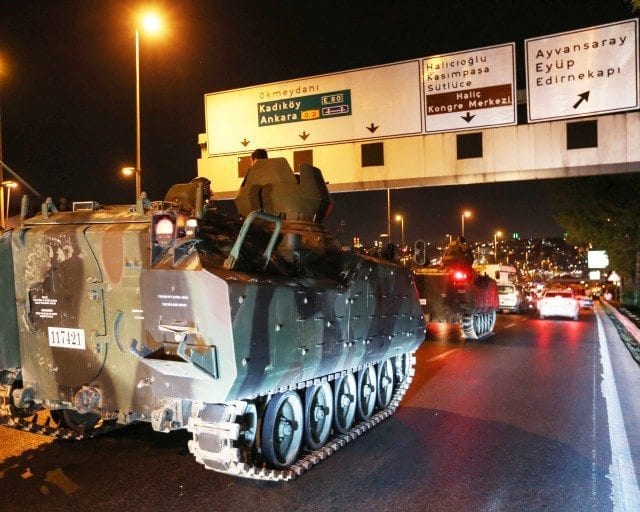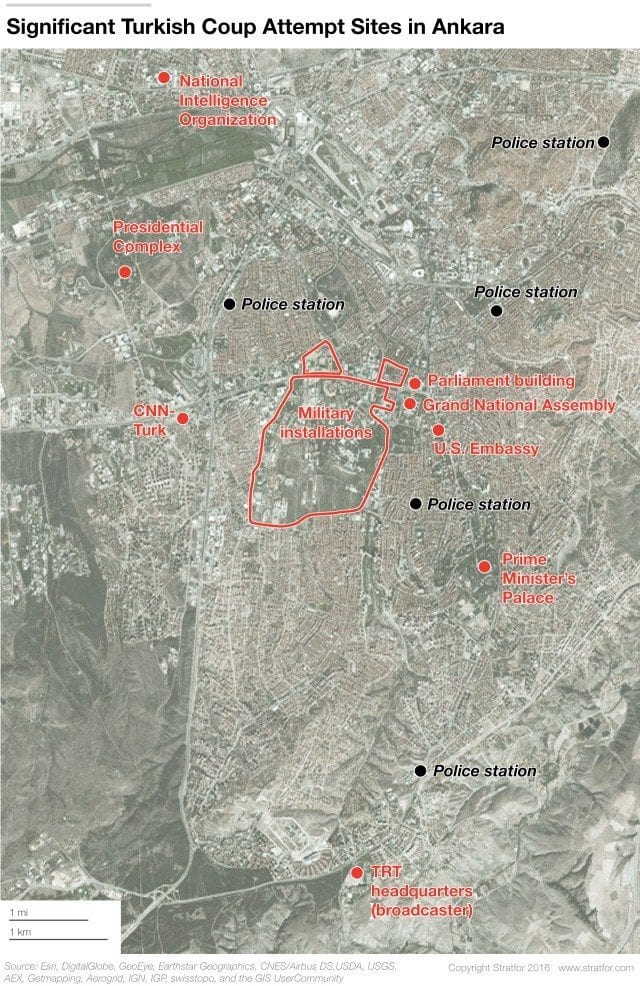STRATFOR INTELLIGENCE REPORTS
Turkish armored personnel carriers move through the streets of Istanbul in the early hours of July 16. The plotters of the coup had the element of surprise on their side, but the attempt is already starting to fray. (DEFNE KARADENIZ/Getty Images)
Analysis
Turkey’s coup plotters certainly had the element of surprise working in their favor. The speed in which the military deployed in major cities and took control of critical power nodes showed a high degree of organization and efficiency. However, the coup attempt is already starting to fray, and its chances of failing are high because a polarizing faction is leading it.
There are multiple indications that followers of the Gulen movement embedded within the military are spearheading the coup attempt. The Gulenists are an Islamist movement that has built up significant influence in Turkey since the 1970s. They started with the gendarmerie, where they could take advantage of lax background checks, and gradually worked their way up the military chain of command. When President Recep Tayyip Erdogan felt that the Gulen movement had become too powerful, relations started to fray between the ruling party and the Gulenists. Starting in 2014, massive purges took place to whittle down Gulenist influence in the media and government.
But the Gulenist influence in the military was not fully purged. This may be because of the large amount of blackmail that the Gulenists retained on major military figures to prevent their own dismissals. In essence, an Islamist faction within the military that has deeply alienated the secular strongmen within the armed forces is the one leading the challenge against Erdogan. In other words, it is not a coup backed by Turkey’s secular political, military and civilian opposition. This is already evidenced by signs of a countercoup led by a number of military commanders and the national police, as well as by the main secular opposition Republican People’s Party leader saying it is against the coup.
As we saw in Turkey’s 2015 elections, when the Justice and Development Party won 49.5 percent of the vote, the country is deeply polarized among secularists, Islamists, Kurds and nationalists. Turkey has a number of fault lines that breed opposition to Erdogan’s Islamist-leaning political agenda and neo-Ottoman foreign policy direction, but on the other side of those splits are a substantial number of supporters who legitimately support the president. Moreover, there are many Turks who are anti-Erdogan yet also anti-coup, and who remember the deep economic and political instability of Turkey’s coup-ridden past. This coup attempt is the product of an Islamist division within the military – and divisions within divisions do not spell success for a coup.




Leave a Reply